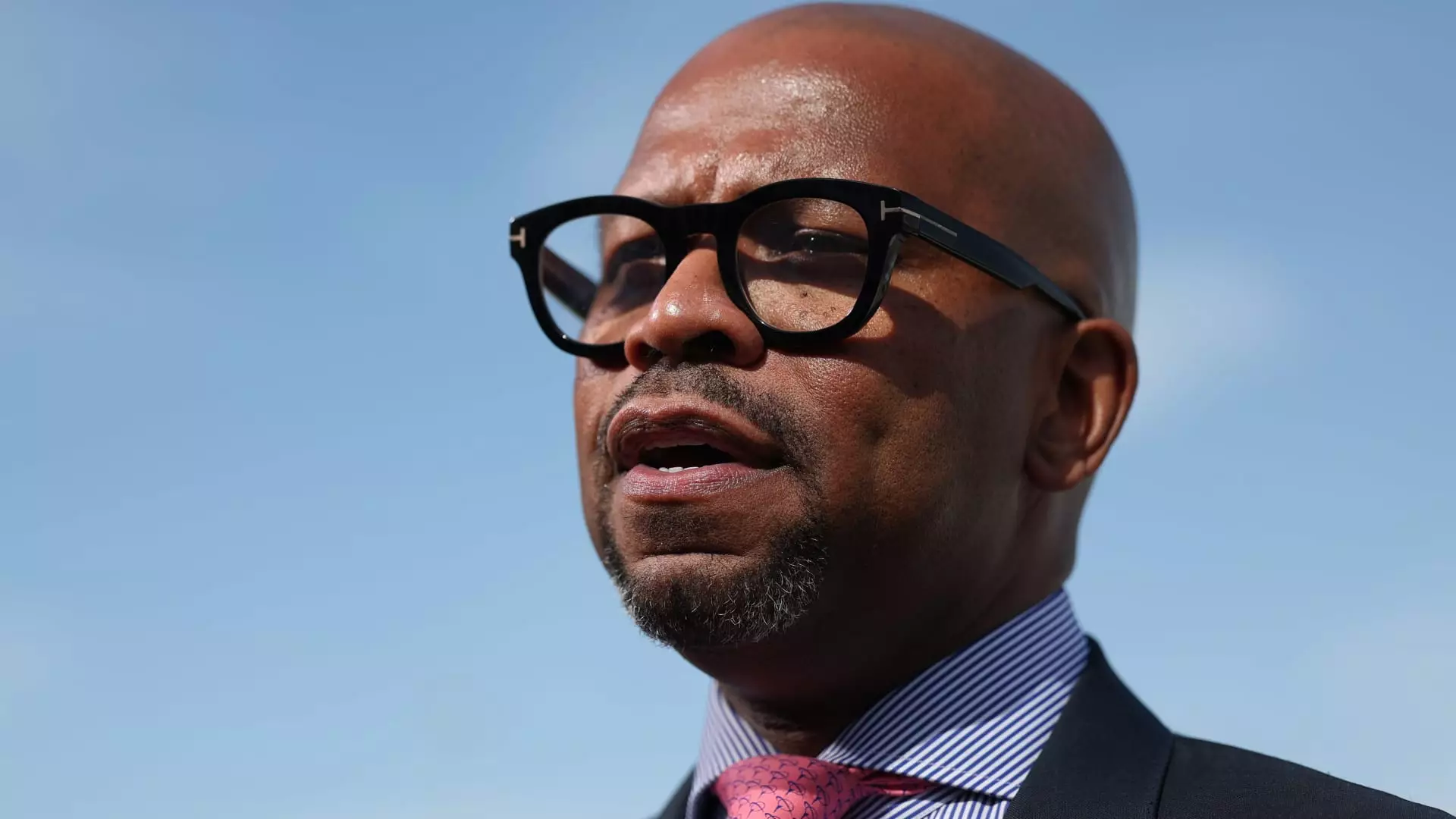In a significant move reflective of Boeing’s ongoing challenges, the company announced that Ted Colbert, head of its defense unit, is departing effective immediately. CEO Kelly Ortberg, who recently stepped into his role in August, revealed this leadership change as part of a broader effort to rejuvenate the company. The urgency of this decision underscores the mounting pressures Boeing faces, particularly in its defense, space, and security division, which constitutes a substantial portion of its revenue stream.
In a communication to staff, Ortberg emphasized the necessity of restoring customer trust and meeting high operational standards that are essential for fulfilling critical missions globally. This clarity in purpose is crucial, as quality lapses have unfortunately marred Boeing’s reputation in recent years. The appointment of Steve Parker, the unit’s Chief Operating Officer, as interim head, indicates a desire for continuity while the company searches for a suitable successor. However, without a permanent leader, uncertainties may persist regarding strategic direction and immediate operational fixes.
Boeing’s defense division has not only been vital for financial performance, contributing nearly 40% of total revenue in the first half of the year, but it has also borne witness to numerous operational hurdles. Notably, issues surrounding production efficiency and budget overruns have plagued key projects. This is particularly concerning in relation to the new 747s slated to serve as Air Force One, highlighting the critical intersection of defense contracts and public trust in government dealings.
In addition to these challenges, the space segment has also witnessed setbacks. The recent return of Boeing’s Starliner from a mission to the International Space Station—lacking its intended crew of NASA astronauts—exemplifies the complications that have plagued the company. NASA’s subsequent decision to utilize SpaceX’s Crew-9 spacecraft further underscores the urgent need for Boeing to rehabilitate both its operational efficacy and overall market perception.
As Boeing navigates this tumultuous landscape, the call for improved performance and accountability cannot be overstated. In an environment where competitors are not only innovating but also executing more successfully, Boeing’s management is under pressure to demonstrate tangible improvements swiftly. Failures to resolve these lingering production issues and regain customer confidence could jeopardize future contracts and ultimately impact the company’s long-term viability.
The transition in leadership is symbolic of a larger shift within Boeing as it strives towards recovery from its recent operational crises. It signals a clear acknowledgment from the top brass that significant change is required to meet both internal goals and customer expectations. For stakeholders, the paramount question remains: can Boeing pivot effectively, restore its historical legacy, and secure a competitive edge within the aerospace industry before further missteps occur? As the company embarks on this crucial journey, all eyes will be on its next moves.

Leave a Reply